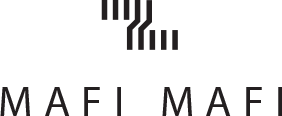While cotton weaving is a skill passed down from generation to generation from Ethiopia’s most impoverished indigenous tribes, the women operating in informal textile weaving industries are the most marginalized. Faced with discriminatory gendered social norms and the constraints of a lack of childcare options, women weavers are often forced into exploitative and low paying contracts with middleman merchants who sell their woven cloth at outdoor marketplaces. Some decide to leave the trade due to financial instability, lack of growth opportunities, and the allure of industrialized textile factories.
ECONOMIC EMPOWERMENT
We train and employ 64 young workers, 90% of which are women, as designers, weavers, seamstresses, pattern makers, production assistants, and sales representatives at our in-house workshop and showroom. We offer livable wages at market value for local skilled labor.
FAIR TRADE
We source cotton locally and collaborate with independent artisan weavers, cooperate with direct and consistent business, and offer fair trade agreements that cut out the middleman. We strive to improve the lives of all people who help produce MAFI MAFI clothing by equitably sharing our revenues.
UPSKILLING
Our hiring process is designed around passion and growth potential, as we believe in developing untapped talent. We provide skills training, capacity-building, and small business literacy to our employees and network of independent artisan weavers.
LIVELIHOODS
The MAFI MAFI workshop has a community-centered culture. We offer hands-on mentorship, guest lectures, a library, and free sanitary supplies to support the professional and personal development of the young women we work with. Our goal is to boost individual confidence and instill a positive identity as makers, colleagues and collaborators.
THE ENVIRONMENT
Cotton is sourced from local small farmers, and the textile dyes we use are naturally derived and chemical free. We operate a zero waste production and zero single-use plastic workshop. We only use hydropower-generated energy, and our team building activities include a bi-yearly Go Green campaign where the team plants trees in local communities.





